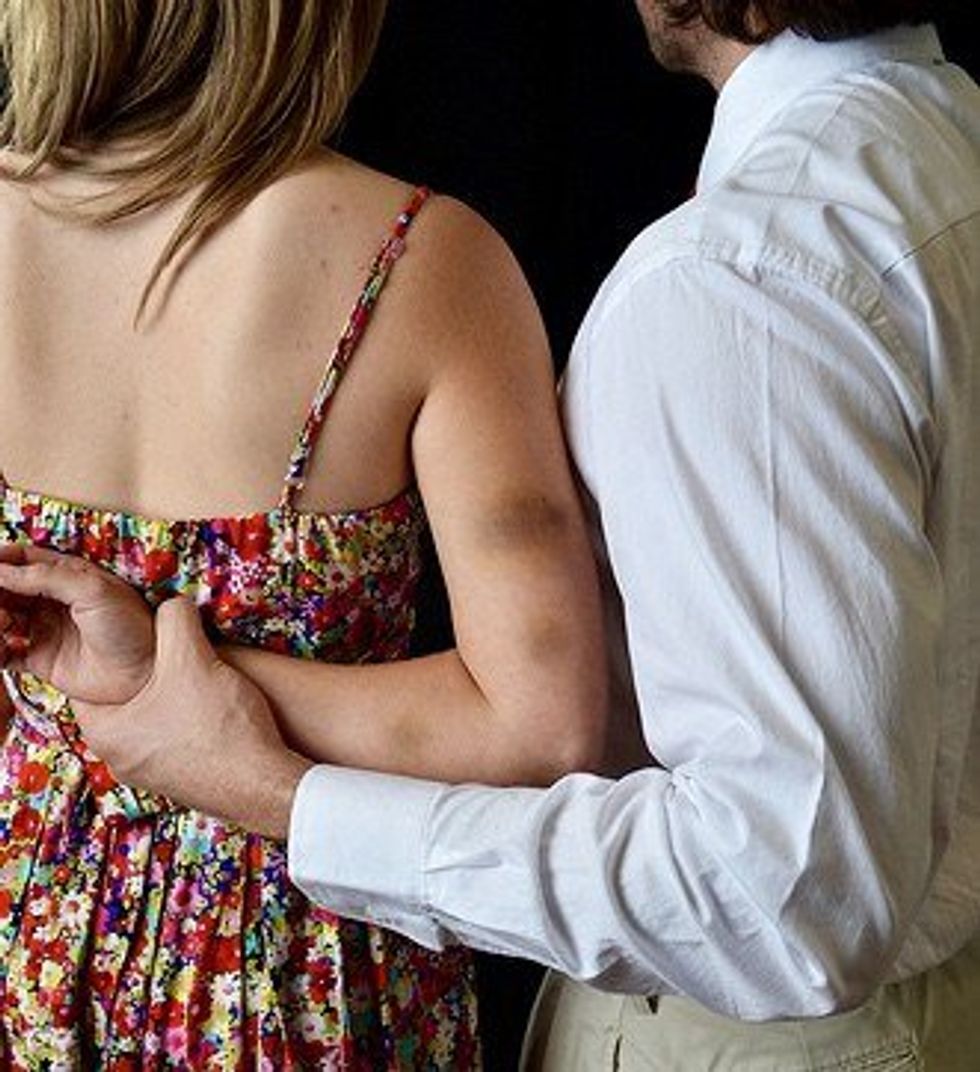When someone says the words "relationship violence," the first thing that people tend to think about is the idea of being slapped in the face, or pushed down the stairs, or punched in the gut. However, this is not the only type of relationship violence that exists. Both emotional and verbal abuse are not only increasingly common in today's society, but incredibly damaging. Although verbal and emotional abuse show no outward signs of damage, internally, the bruises still exist.
Recently, a Twitter hashtag has sprung up to battle the notion that all relationship violence is physical. Users share stories and examples of how psychological abuse can be just as damaging as violent abuse.
These are just a few of the thousands of tweets shared over the last few days regarding the topic.
The hashtag was started by Zahira Kelly, an artist and writer, in order to raise awareness about the different kinds of abuse. Although I am not generally a proponent of using a platform such as Twitter to promote such sensitive and controversial topics, I believe that the movement is incredibly effective.
Showing Twitter users, in 140 characters or less, different aspects of relationship violence is actually very helpful. Users have the ability to flip through hundreds of tweets in just a few minutes. This means that users have now been exposed to many different ideas, perspectives, and stories from users around the country and the world that they would not have known otherwise.
Not only does this give information to those who may not know much about the topic, but the hashtag also gives victims an opportunity to speak out about their own struggles. Additionally, victims have the ability to read through other users stories, relate to, and communicate quickly and easily with those who have suffered through similar situations.
Although the hashtag focuses on non-physical relationship violence, that does not mean that violent behavior is uncommon in relationships. Every nine seconds in the United States, a woman is assaulted or beaten by a partner or an ex-partner. However, relationship violence does not only occur towards women. Between 2014 and 2015 in the United Kingdom, 1.3 million women and 600,000 men experienced some form of domestic violence. It is an issue that crosses all genders, socio-economic statuses, and age groups.
The issue of relationship violence is becoming more and more prominent amongst younger generations. Roughly 1.5 million high school aged boys and girls in the United States admitted to being sexually or physically abused by a romantic partner within the past year. About one out of every three people will be in an unhealthy relationship at some point in their lives. Approximately 50 percent of people who have experienced sexual or physical assault will attempt suicide at some point during their life. However, only 33 percent of people who experience abuse confide in someone about their abuse.
This goes to show just how important #MaybeHeDoesntHitYou really is. The hashtag encourages Twitter users, a social media site particularly common amongst young people, to speak out about relationship violence.
If the hashtag saves just one life, or helps just one person realize that they are in an unhealthy relationship, I consider it a success.


























